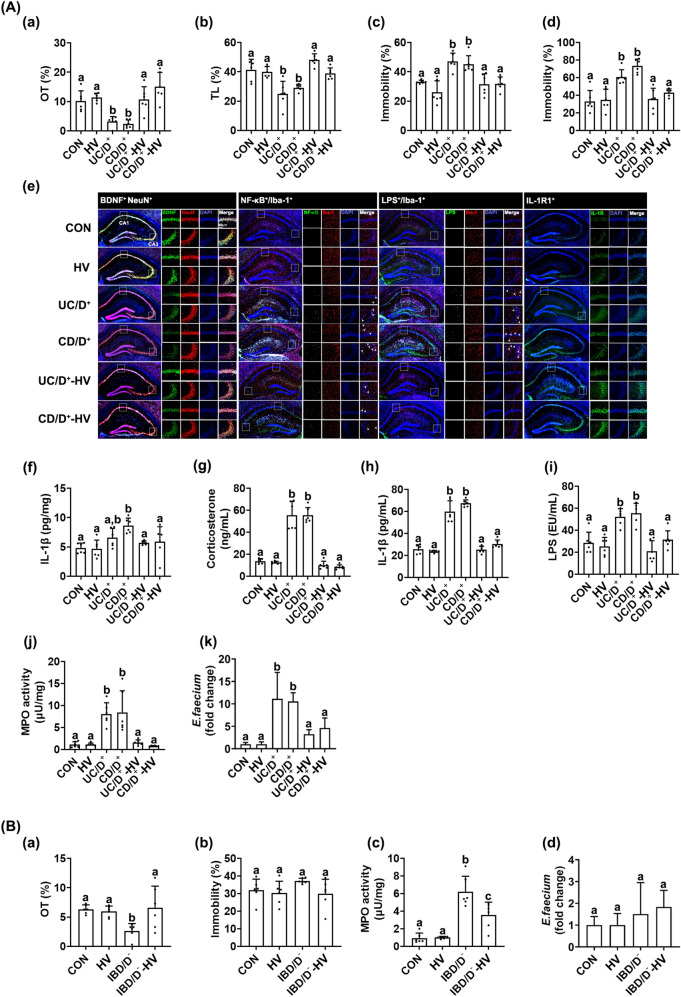Figure 7.
Fecal microbiota transplantation (FMT) from healthy volunteers (HVs) alleviated IBD/D+-F-induced depression and colitis in the transplanted mice. (A) Effects in IBD/D+-F (UC/D+-F- or CD/D+-F)-gavaged mice. Effects on the occurrence of anxiety/depression in the EPM (a) and LDT tasks (b), TST (c), and FST (d). Effects on the BDNF+/NeuN+, NF-κB+/Iba1+, LPS+/Iba1+, and IL-1R+ cell populations (e) and IL-1β expression (f) in the hippocampus (f). Effects on the corticosterone (g), IL-1β (h), and LPS levels (i) in the blood. (j) Effects on the myeloperoxidase (MPO) activity in the colon. (k) Effects on the fecal Enterococcus sp. population. (B) Effects in IBD/D−-F (CD/D−)-gavaged mice. Effects on the occurrence of anxiety/depression in the EPM task (a) and TST (b). (c) Effects on MPO activity in the colon. (d) Effects on the fecal Enterococcus sp. population. HF, IBD/D+-F, or IBD/D−-F suspension was orally transplanted in mice once a day for 5 days. Control mice (CON) were treated with vehicle (saline) instead of fecal suspension. From the next day, HV-F suspension was gavaged in IBD/D+-HV and IBD/D−-HV mice once a day for 5 days. Con, IBD/D−, and IBD/D+ mice were treated with vehicle (saline) instead of fecal suspension. Data values were indicated as mean ± SD (n = 6). Fecal Enterococcus sp. population was analyzed by using qPCR. Means with same letters are not significantly different (p < 0.05). All data were analyzed using ANOVA with Tukey’s multiple comparisons test.

